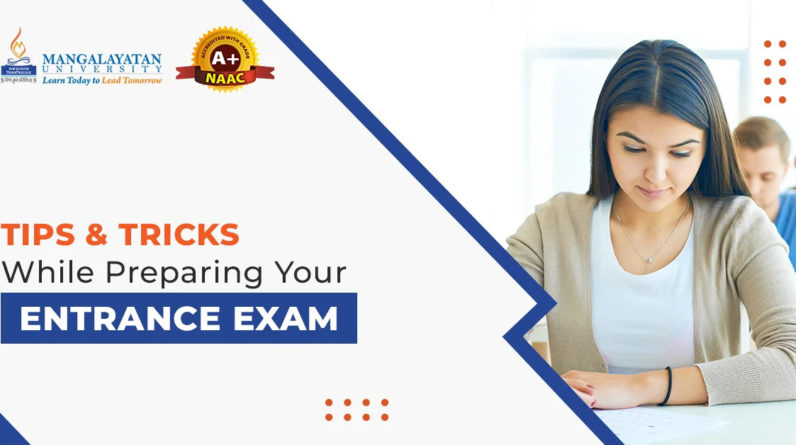
How to Prepare for Your College Entrance Exams
Preparing for college entrance exams can be a daunting task, but with the right strategies and mindset, it is entirely manageable. In this comprehensive guide, we will walk you through every step you need to take to ensure you are fully prepared to excel. From understanding the exam format to effective study techniques, we have got you covered.
Understanding the Exam Format
Before diving into your study sessions, it is crucial to understand the format of the college entrance exams you will be taking. Each exam, whether it’s the SAT, ACT, or another standardized test, has its own structure, timing, and types of questions. Familiarize yourself with these aspects to tailor your preparation accordingly.
SAT and ACT Overview
SAT: The SAT consists of four sections: Reading, Writing and Language, Math (no calculator), and Math (with calculator). Additionally, there is an optional Essay section. The total duration is 3 hours (plus 50 minutes for the Essay).
ACT: The ACT includes English, Math, Reading, Science, and an optional Writing section. The total duration is 2 hours and 55 minutes (plus 40 minutes for the Writing section).
Understanding the breakdown of each section and the time allocated will help you manage your time effectively during the test.
Creating a Study Plan
A well-structured study plan is the foundation of effective exam preparation. Here’s how to create one:
Assess Your Starting Point
Begin by taking a practice test to assess your current level. This will help you identify your strengths and weaknesses, allowing you to focus on the areas that need the most improvement.
Set Realistic Goals
Based on your practice test results, set realistic score goals for each section. Having specific targets will keep you motivated and provide a clear direction for your study efforts.
Develop a Study Schedule
Create a study schedule that outlines daily and weekly tasks. Allocate more time to your weaker areas but don’t neglect your strengths. Consistency is key, so make sure to stick to your schedule as closely as possible.
Effective Study Techniques
With your study plan in place, it’s time to employ effective study techniques to maximize your learning.
Active Reading and Note-taking
For sections like Reading and Writing, active reading and note-taking can significantly improve comprehension and retention. Highlight key points, summarize passages in your own words, and take detailed notes to reinforce your understanding.
Practice with Real Test Questions
Practice makes perfect. Use official practice questions and past exams to familiarize yourself with the types of questions you will encounter. This not only helps with understanding the content but also with time management.
Utilize Online Resources
There are numerous online resources available, including Khan Academy for SAT prep and various ACT prep websites. These platforms offer practice questions, video tutorials, and personalized study plans.
Join Study Groups
Studying with peers can provide motivation and different perspectives on challenging topics. Join study groups, either in-person or online, to discuss problems and share study tips.
Time Management Strategies
Managing your time effectively during the exam is crucial to ensure you can answer all questions to the best of your ability.
Pacing Yourself
Practice pacing by timing yourself during practice tests. Learn to gauge how long you can spend on each question without running out of time.
Answer Easy Questions First
During the exam, tackle the easier questions first to secure those points quickly. This approach leaves you with more time to focus on the tougher questions.
Use the Process of Elimination
If you’re unsure about an answer, use the process of elimination to narrow down your choices. This increases your chances of selecting the correct answer even if you have to guess.
Maintaining a Healthy Study-Life Balance
While studying for your exams is important, maintaining a healthy balance between study and relaxation is essential for long-term success.
Take Regular Breaks
Incorporate short breaks into your study sessions to avoid burnout. A good rule of thumb is to take a 5-10 minute break every hour.
Stay Active
Physical activity can boost your mood and cognitive function. Make time for regular exercise, whether it’s a walk, a run, or a workout at the gym.
Get Enough Sleep
Adequate sleep is crucial for memory consolidation and overall brain function. Aim for 7-9 hours of sleep per night, especially in the days leading up to your exam.
Eat Healthily
Nutrition plays a vital role in cognitive performance. Eat a balanced diet rich in fruits, vegetables, and whole grains to keep your brain fueled and functioning optimally.
Test Day Preparation
The day of the test is your time to shine. Here are some tips to ensure you are fully prepared.
Gather Your Materials
The night before the exam, gather all the materials you’ll need, including:
- Admission ticket
- Photo ID
- Approved calculator
- Pencils and erasers
- A watch (without a beeping alarm)
Know the Test Center Location
Make sure you know the location of your test center and plan your route in advance. Arrive early to avoid any last-minute stress.
Eat a Healthy Breakfast
A nutritious breakfast will provide you with the energy you need to focus during the test. Avoid heavy or sugary foods that could cause a crash later on.
Stay Calm and Confident
Take deep breaths and remind yourself of all the preparation you have done. Stay positive and confident in your abilities.
Post-Exam Reflection
After the exam, take some time to reflect on your performance.
Analyze Your Experience
Think about which sections you felt confident in and which you found challenging. This self-assessment can help you improve for future tests if necessary.
Consider Additional Preparation
If you plan to retake the exam, use your reflections to adjust your study plan and focus on areas that need improvement.
Conclusion
Preparing for college entrance exams requires dedication, effective strategies, and a positive mindset. By understanding the exam format, creating a structured study plan, utilizing effective study techniques, and maintaining a healthy study-life balance, you can maximize your chances of achieving your desired scores. Remember, consistent effort and confidence in your abilities are key to success.

Hi, I am John Smit a Captain in Fire Department City of Newyork with over years of experience in the field of Firefighting and HSE. My passion for fire safety started when I was a young boy and witnessed a neighbor’s house go up in flames along with precious lives. Since then, I had dedicated my life to ensuring the safety of buildings, properties, and individuals in case of a fire and medical emergencies.



